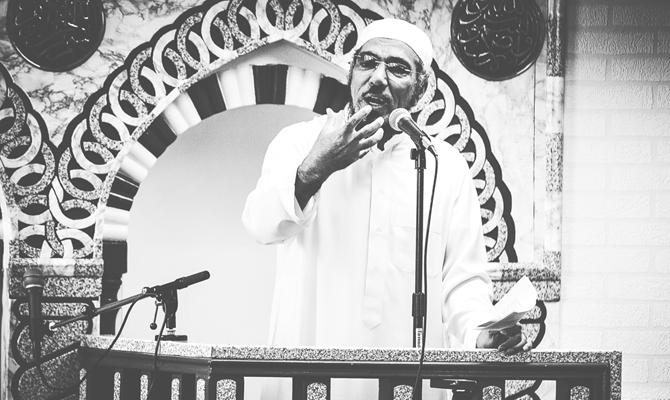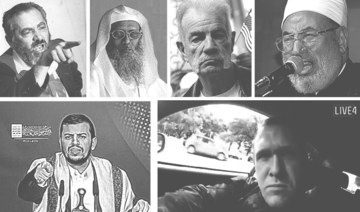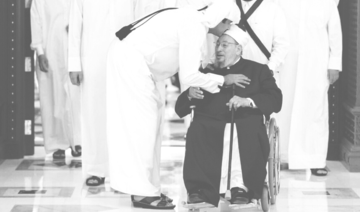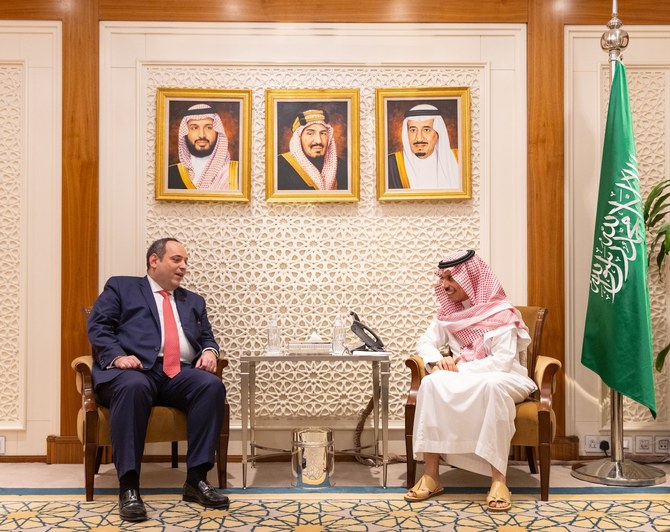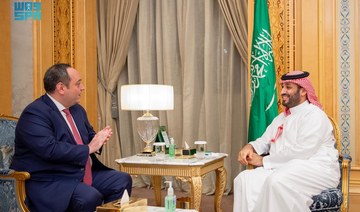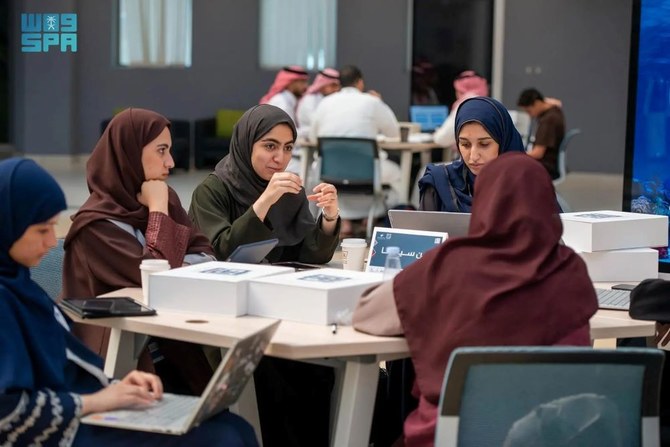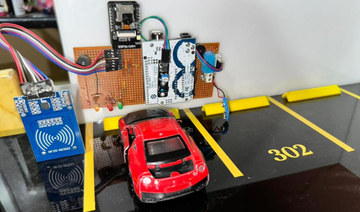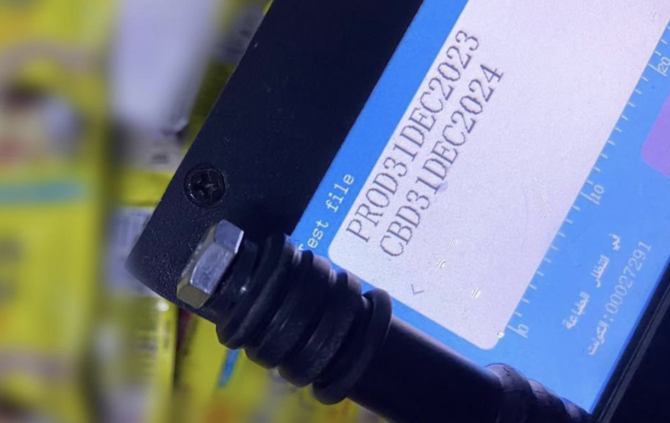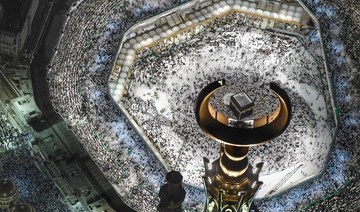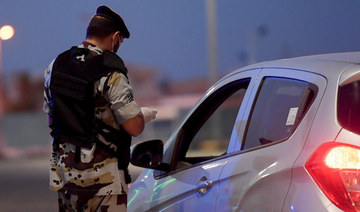JEDDAH: Salman Al-Odah is next in the Arab News series “Preachers of Hate.” The controversial preacher, who once referred to the late Al-Qaeda leader Osama bin Laden as “brother,” has influenced young Saudis and Muslims for decades.
Al-Odah is infamous for his 1990s sermons “Come for Jihad” and “The Industry of Death.” Circulated on clandestine audiotapes that were spread throughout Saudi Arabia and beyond, the sermons called for his followers to perform jihad in Afghanistan, Iraq and other occupied Muslim lands.
Although after his release from jail in 1999 he profusely refuted claims in TV interviews on MBC that he incited jihad, the audiotapes are still obtainable on his personal website.
Al-Odah capitalizes on his show of piety with softly spoken words, but is criticized for using this approach to incite terror and intolerance.
Born and raised in the Saudi city of Buraidah, he first rose to prominence as a lecturer at the local institute in the 1980s.
He then took a sharp turn at the end of the decade to become a voice of the Islamic Awakening (Al-Sahwa) movement.
For years, as the leader of that movement, Al-Odah and his associates preached anti-Semitic and anti-Western ideas to their followers.
It was halted in 1994 by the Saudi government as the movement took a more extremist approach to Islam, spreading a terror-related ideology among the region’s youth in opposition to the foreign military presence in the Kingdom during Operation Desert Storm in 1991, which liberated Kuwait from Iraqi occupation.
In 1993, a joint commission spearheaded by the Grand Mufti Sheikh Abdul Aziz bin Baz found Al-Odah’s rhetoric a danger to Saudi society.
Al-Odah was ordered to attend a rehabilitation session, and was banned from conducting sermons and lectures.
But he disregarded the order, continued preaching disdain for the presence of American soldiers, and was sentenced in 1994 to five years in prison.
The charges included spreading hate rhetoric that jeopardized the sanctity and religious stability of Saudi society.
After his release from prison in 1999, Al-Odah came across as a reformed man, suggesting on talk shows that he had changed paths from his previous conservative and highly controversial views.
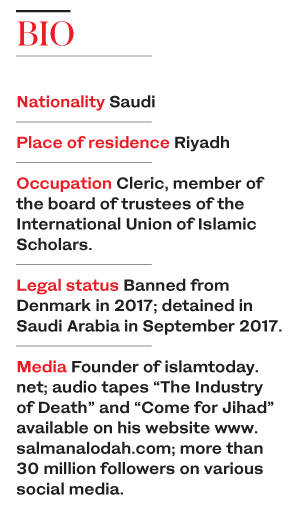 His first test came after the 9/11 attacks. His critics say he failed to condemn them clearly, but on the sixth anniversary, he said on a TV show: “My brother Osama, how much blood has been spilled? How many innocent people, children, elderly and women have been killed … in the name of Al-Qaeda? Will you be happy to meet God Almighty carrying the burden of these hundreds of thousands or millions of victims on your back?”
His first test came after the 9/11 attacks. His critics say he failed to condemn them clearly, but on the sixth anniversary, he said on a TV show: “My brother Osama, how much blood has been spilled? How many innocent people, children, elderly and women have been killed … in the name of Al-Qaeda? Will you be happy to meet God Almighty carrying the burden of these hundreds of thousands or millions of victims on your back?”
While Al-Odah once deemed TV watching as evil, he began to build a major fan base via appearances on multiple Arab channels, such as Qatar’s Al Jazeera Arabic and the Saudi Almajd TV Network.
He even hosted his own show, “Al-Hayat Kalima” (“Life is a Word”), on the Saudi-owned MBC. The show was cancelled in 2011.
With the development of social media platforms, Al-Odah reached out to a much larger audience, gradually establishing himself on YouTube, Twitter, Snapchat, Facebook and Telegram to speak directly to his followers. His messages on these platforms focused on philanthropy, religion and social issues.
“He achieved more prominence with his appearances on satellite channels and the media, and with the spread of the internet,” Hani Nasira, an Egyptian author and journalist who specializes in ideological movements, told Arab News.
Appearing nonchalant in numerous TV interviews, refusing to admit wrongdoing while dodging challenges with his elusive rhetoric, Al-Odah denied issuing his controversial fatwas (religious edicts), even though they are documented, distributed and available in Arabic on his personal website.
In one such fatwa, posted on his website in 2017, he prohibited women from wearing trousers in front of others because, he said, they show the size of women’s sexual organs, causing “sedition and excitement.”
Al-Odah is accused of developing affiliations with groups that have been regarded as terrorist organizations, notably the Muslim Brotherhood and the International Union of Islamic Scholars, of which he is a member of the board of trustees.
The union was listed as a terrorist organization by several Arab countries in November 2017 for its support and funding of acts of terrorism worldwide, specifically in the West.

It was founded in 2004 in Qatar under the leadership of Yusuf Al-Qaradawi, who was featured in the Arab News “Preachers of Hate” series and whose controversial views include the “justified” killing of Jews.
In a 2010 interview with Asharq Al-Awsat, Al-Qaradawi described Al-Odah as “one of my closest friends.”
In May 2017, Al-Odah was put on a blacklist of six preachers banned from entering Denmark for two years for preaching against the fundamental values of Danish society.
The list included Christian pastor Terry Jones, who was also included in the “Preachers of Hate” series.
In September 2017, Al-Odah was detained in Saudi Arabia, in a government crackdown on several of the most prominent preachers of hate. Al-Odah’s son Abdullah Alaoudh (he spells his name differently than his father), a Washington Post and New York Times (NYT) contributor, has been a vocal critic of his father’s arrest.
In an NYT op-ed, Alaoudh questioned the legitimacy of his father’s arrest and defended his subtler approach to Islam.
“For almost two decades, he (Al-Odah) has vocally led the campaign against terrorism in Saudi Arabia,” Alaoudh wrote. “He has called for renewing religious discourse and argues for moderate Islam.”
However, Alaoudh does not delve into what many critics believe is the devastating effect his father’s hate preaching has had on Muslim youth.
Nor does he explain his father’s contradictory points of view on serious topics such as non-Muslims, Western values and justification for taking lives.
In the view of critics, Al-Odah has developed a reputation for shifting like a chameleon to avoid censure, appearing as a soft-spoken spiritual cleric appealing to younger generations on social media, while masking his extremist views with elusive rhetoric or dismissing previous sermons as back in the past.
This despite him promoting his extremist views on his own website, and despite his extensive affiliations with terrorist organizations.
This tendency to shift positions “according to time and context” is common among “many clerics and preachers, especially those … who have ambitions for power, domination and religious tutelage,” said Nasira.



